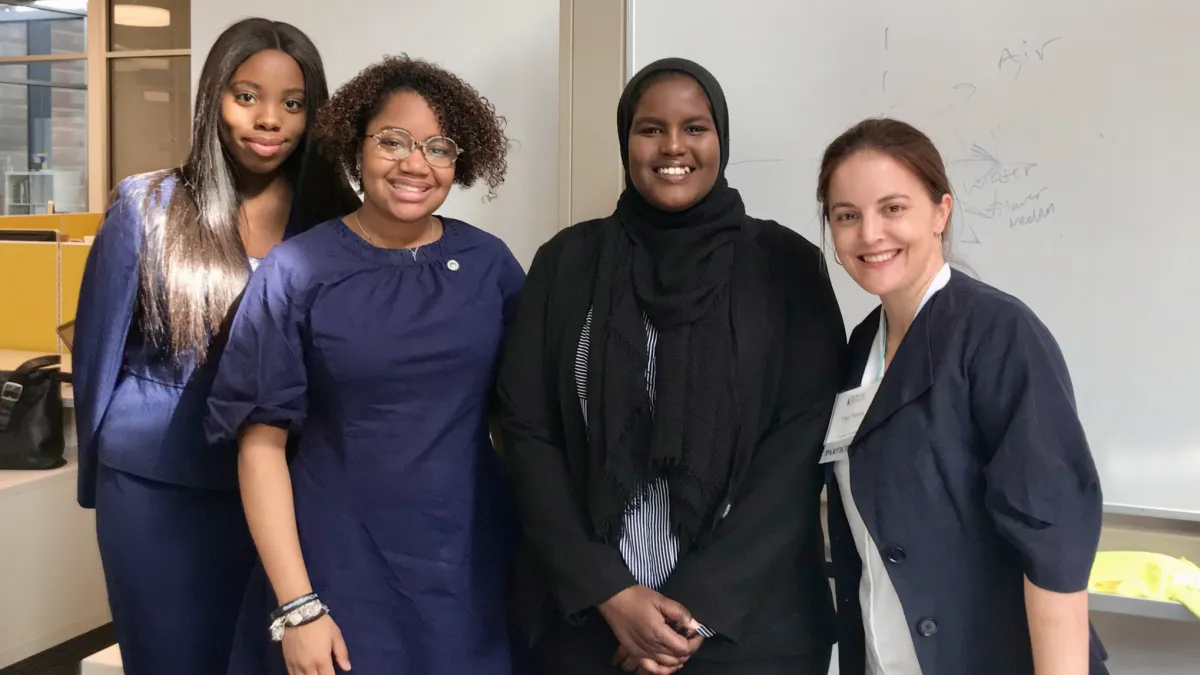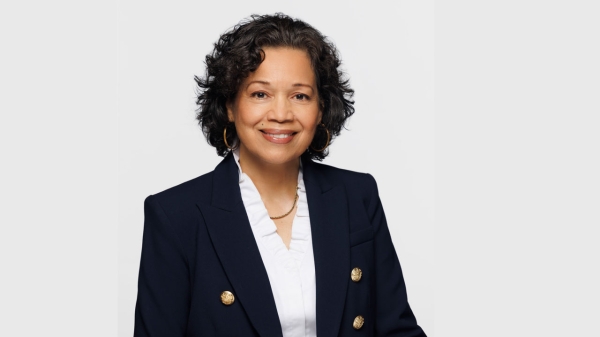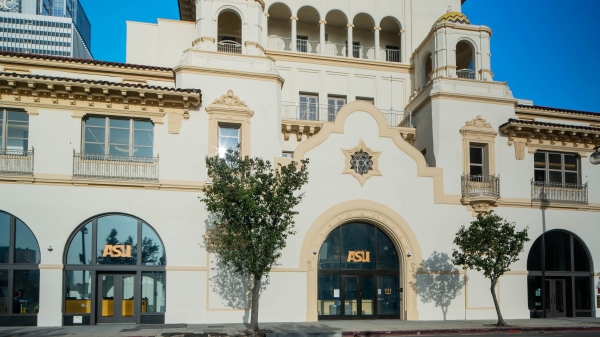ASU faculty contributing to improvement of Wikipedia

Authors (from left) Mariam Trent, Lundyn Davis, Sophia Hussein and Tracy Perkins present their research at Howard University Research Week. Courtesy photo
Many academics have a love-hate relationship with Wikipedia. While the website has information about almost anything you can imagine, the credibility of that information is sometimes suspect.
Tracy Perkins, an associate professor in Arizona State University's School of Social Transformation, hopes to change that. Perkins was recently appointed as a member of the inaugural Humanities and Social Justice Advisory Committee for Wiki Education.
As a member of this committee, Perkins, her colleagues and partners from the Mellon Foundation will advise and support Wikipedia Student Program’s Knowledge Equity Initiative.
Wiki Education engages students and academics across the country to improve Wikipedia, enrich student learning and build a more informed public. Empowering students and other subject matter experts to add content to Wikipedia ensures that the world's most used reference is more equitable, accurate and complete.
“Wikipedia’s articles about history and religion have real-life impact on the world,” said Shira Klein, associate professor and chair of the Department of History at Chapman University. “What people read on Wikipedia shapes the opinions they form about politics, social justice and so forth. Therefore we need to make sure Wikipedia gets it right, and this project is going to help that goal.”
The role these faculty play will help promote information equity on Wikipedia by facilitating a Teaching with Wikipedia workshop at their home institutions, presenting about the program and related research at humanities conferences, and reviewing new Wiki Education resources associated with the Knowledge Equity Initiative.
Perkins has been teaching students to contribute to Wikipedia through her courses since 2017 at ASU and Howard University, where she was previously an assistant professor of sociology. Her students improve Wikipedia articles related to her courses on environmental justice, agriculture and food justice. As they do so, they also learn about how social inequality impacts both knowledge creation and its circulation.
Earlier this year, Perkins and three former students published an analysis of their experiences. Thus far, her students have edited 235 articles, added 102,000 words and 1,230 references, and their work has received 30 million article views.
“If you know how to navigate the site, Wikipedia is a uniquely transparent knowledge-sharing platform,” Perkins said. “So students get to see how the articles are developed in ways that are typically black-boxed in academia’s peer-review process or in what happens in the office of news media organizations. This makes it a great learning opportunity for identifying how bias can shape Wikipedia content, and for practicing how to intervene in those processes.”
Alongside Perkins, School of Social Transformation faculty Terri Hlava has also used Wikipedia as part of her courses.
“We love the amount of support — from the trainings to the course guides to the assistance available via email,” Hlava said. “With the use of Wikipedia, students are thinking critically about the knowledge gaps and inequities found in public information sources and resources — and they work to improve these conditions with each assignment.
"It's great that students get to see the impact of their work so quickly too, as the number of page views grows far faster than the number of scholars and colleagues who may otherwise read their published work.”
While Perkins mostly works behind the scenes on Wikipedia to support her students’ editing, she recently completed a “Scholars and Scientists” training program from Wiki Education designed to help topical experts directly edit the site. Perkins took the course to deepen her knowledge of Wikipedia in anticipation of beginning a project to help Wikipedia editors and scholars better document the history of the environmental justice movement. Accordingly, as part of her coursework, she drafted a new article on the Navajo environmental group Diné CARE, which was one of many grassroots groups around the country that contributed to the creation of the U.S. environmental justice movement. This effort is part of the larger Environmental Justice Legacy Initiative Perkins and her collaborators are leading.
To learn from and contribute to the collection of knowledge within Wiki Education, find additional free trainings from Wiki Education at wikiedu.org.
Additional new members of this committee can be viewed in Wiki Education’s recent blog article.
More Law, journalism and politics

CBS News president to give keynote address at Cronkite School’s spring convocation
Ingrid Ciprián-Matthews, president of CBS News, will serve as the keynote speaker at Arizona State University’s Walter Cronkite School of Journalism and Mass Communication spring 2024 convocation. …

School of Politics and Global Studies director's new book explores mass violence
Why do people commit atrocities and why are certain groups, including religious and ethnic, more vulnerable to large-scale violence? These questions are explored in a new book by Güneş Murat Tezcür…

ASU Law students gain vital experience through Los Angeles location
Students at the Sandra Day O’Connor College of Law at Arizona State University may be concentrated in the school’s downtown Phoenix headquarters, but they have more choices than ever when it comes to…